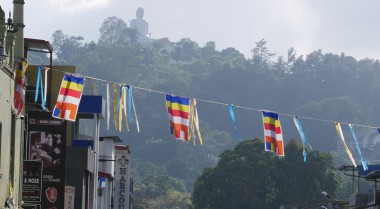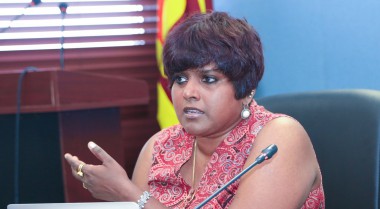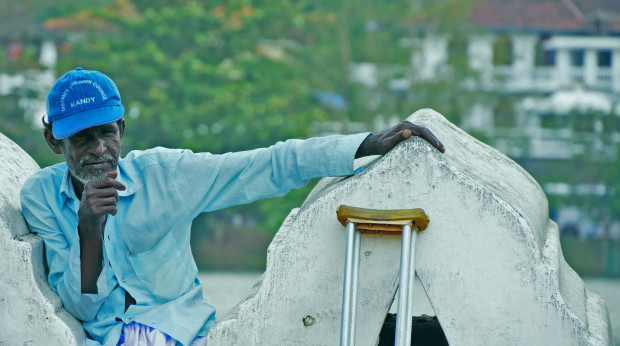
Post-Easter Sunday Attacks: The Peace and Security nexus in Sri Lanka
The modern conflict environment is complex due to the involvement of various actors and the changing nature and scope of conflicts. It is important that the various actors working in peacebuilding adjust their work to suit the new realities. This calls for a serious inquiry on how to achieve peace and security despite the odds. The recent terror attacks in Sri Lanka sent shock waves across South Asia and the rest of the world. It caused us to question our understanding of security and promotion of peace in a highly volatile environment.
What happened in Sri Lanka?
On April 21st 2019, a series of explosions targeting churches and luxury hotels killed 258 people. A video was broadcasted through Amaq news agency of ISIS claiming responsibility for the attacks. On the 23rd of April, the president of Sri Lanka declared a state of emergency. Island-wide investigations, curfew and arrests revealed activities of a homegrown group of extremists called the National Thowfeek Jamath. The attacks revealed a serious failure on the part of the state to act on intelligence received from foreign sources multiple times due to lack of coordination and leadership. While the government began an elaborate blame game among incumbent political parties, certain other political figures utilized the event for their own self-aggrandizement.
The suicide bombers were Muslims. As a result, this immediately sparked ethnic tensions with violent riots across the country. Fake news and hate speech spread all over social media causing confusion and promotion of a dangerous narrative that threatened ethnic harmony. The state’s response towards the events were both negative and positive. The armed forces and police acted positively by providing maximum security measures to stabilize the situation. As a result, there were no further attacks on a mass scale and all religious places were protected from harm. The government reacted negatively by proposing harsh legislature for fake news and social media regulation.
As the state embarks on a path of hyper-securitization, with measures that restrict democratic space and fundamental freedoms, these actors [civil society organisations] play an important role.
Understanding Security and the State
In the field of International Relations, Security is defined as being free from threats. In responding to threats of violent extremism, the state is given a prominent role as the guarantor of the safety of the nation, its institutions, economy and citizens. The state also uses extraordinary measures justified in the name of National Security. Theoreticians, such as Barry Buzan, belonging to the school of thought called “wideners”, have suggested that security is not exclusively in the realm of the military but that it has other dimensions, including political, economic, societal and environmental.
When an event such as the Easter Sunday Attacks occurs, we tend to identify security to be guaranteed solely by the state. We neglect other actors that could contribute to shaping the security agenda. Those actors include: civil society, experts and academics from multi-disciplinary backgrounds. As the state embarks on a path of hyper-securitization, with measures that restrict democratic space and fundamental freedoms, these actors play an important role. They confront and challenge mainstream opinions that get promulgated due to parochialism on the part of both the state and strong-nationalists.
Following the Easter Sunday Attacks, economist Dr. Nishan de Mel said:
Promoting Peace in a Volatile Environment
The situation after the attacks is highly volatile. It considerably disrupted the post-war peace process in Sri Lanka. The Tamil minority were healing from the devastation of three decades of armed conflict and we saw the strong rhetoric of terrorism fading away. The attacks caused a resurgence of the terrorism rhetoric, thereby shifting the focus from Tamil issues, other minority issues, economic development and political reform to a heavy national security-oriented discourse.
Curtailing freedoms with harsh legislature is a danger to democracy.
Against this background, an insight from Professor Diehl about analyzing ‘peace’ beyond the state as the main analytical entity, and beyond European frameworks becomes highly important. Sri Lanka, which has a unique social, political, ethnic, religious and cultural fabric must devise a methodology for the promotion of peace in a highly dynamic conflict environment. To draw up this methodology, civil society and experts from various backgrounds are an absolute necessity. The Easter Sunday Attacks demonstrated the central weaknesses of the mainstream political parties of Sri Lanka as opportunistic and persistent objectors to certain important democratic values, such as dissent, dialogue, justice and equality. For example, the unwillingness of the state to accept responsibility in not preventing the attack and the lack of prosecutions of the perpetrators is negative. Curtailing freedoms with harsh legislature is a danger to democracy. The failure to investigate and punish negligence of those in authority shows lack of state-responsibility to the citizens. Further, the government is not open to vital security sector reforms.
The Way Forward
The state has left a vacuum with lack of action and responsibility, which should be filled by other actors who need to step up to discuss, debate and ensure the promotion of peace in Sri Lanka. To promote peace in such a volatile environment, we should have a calibrated methodology and collaboration.


